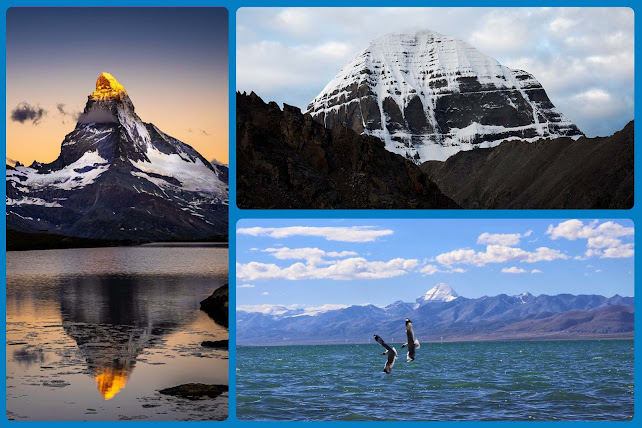What is the Significance of Kailash Mansarovar Yatra?
Kailash
Mansarovar Yatra is a spiritual journey to Mount Kailash and Lake Mansarovar in Tibet. Mount Kailash is considered a sacred site by Hindus, Buddhists,
Jains, and Bon, and is revered as the abode of Lord Shiva, one of the most
important deities in Hinduism. Lake Mansarovar, on the other hand, is
considered sacred due to its mythological and spiritual significance.
The
journey to Kailash Mansarovar is considered one of the most challenging pilgrimage tour treks in the world due to the high altitude and harsh weather conditions
in the region. It typically takes about 21 days to complete the journey, which
includes travel to and from the base camp, acclimatization, and the actual trek
to Kailash and Mansarovar.
The
journey begins with a flight to Kathmandu, Nepal, and then continues by road to
the border of Tibet, where the trek to Kailash and Mansarovar begins. Along the
way, travelers pass through several remote villages, cross high-altitude
passes, and get a chance to experience the unique culture and tradition of the
region.
Once at
Kailash and Mansarovar, travelers undertake a pilgrimage around the base of
Mount Kailash, a ritual known as "parikrama," which is believed to
bring blessings and wash away one's sins. The parikrama takes about three days
to complete and is considered a physically and mentally challenging
experience. At Lake Mansarovar, pilgrims take a dip in the holy waters, which
are said to purify the mind and soul.
The
Kailash Mansarovar Yatra is a once-in-a-lifetime experience for many and is
considered a spiritual journey that provides an opportunity for
self-reflection, personal growth, and a deeper connection with the divine.
In
conclusion, the Kailash Mansarovar Yatra is a challenging but rewarding journey
that offers a unique blend of physical, mental, and spiritual challenges. It is
a journey that requires preparation, both physical and mental, but for those
who undertake it, it is an unforgettable experience that provides a deeper
connection with the divine and a greater understanding of the self.


.jpg)
Comments
Post a Comment